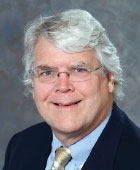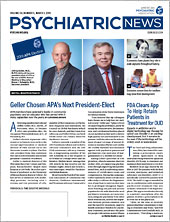“It was a beautiful spring day, blue sky and bright sun, as I entered the back of the church for the funeral of one of my patients—a physician I had treated for the last three years. I was diffident about attending and took a place in an empty pew near the back where I could be present for the service and pay my last respects to Dr. Marco Bianchi. As Marco’s psychiatrist, I felt the weight of sadness at his passing and wondered if I could have done anything else to prevent his death. So many questions had been going through my head since I learned of his suicide a week before.”
It is estimated that 50 percent of psychiatrists have a patient with whom they have a close doctor-patient relationship and who dies by suicide. The situation is especially difficult when the patient who completed suicide is a physician because the professional and personal identification with the patient inevitably leads to feelings of loss and guilt. How to prevent physician suicide is one of the many important questions being examined by health care researchers interested in physician health and well-being.
So what do we know about physician suicide, and how can we prevent this tragedy?
We know that physicians are at a higher risk for suicide than the general population. The American Foundation for Suicide Prevention estimates that 300 to 400 physicians die by suicide each year in the United States. Moreover, the suicide rate for women physicians is markedly elevated, with a relative risk of 2.27 compared with the general population of women, while for men, the relative risk is 1.4. This is hardly surprising as physicians have the knowledge and skills to ensure that their suicide attempt is successful, and consequently they have a much higher rate of completed suicides compared with that of the general population.
Risk factors for suicide in the general population include major depression and other mood disorders, substance use disorders, adverse life events, access to lethal means, medical illness, a family history of mental illness, age of 50 or older, and sex (male more common overall). We also know that approximately 15 percent of physicians will develop a substance use and/or a mental health–related condition (usually depression or anxiety) that could potentially impair their ability to practice medicine. About 30 percent to 50 percent of physicians at some stage of their career exhibit symptoms of burnout, which may lead to anxiety, depression, or substance use disorders.
Such is the stigma of psychiatric disorders that even among physicians, they rarely report depression or suicidal ideas and prefer to suffer in silence or attempt to treat themselves. These behaviors are embedded in the medical subculture, which encourages denial and self-reliance and are at least partly learned implicitly during training.
Few research questions in medicine are more important than how can we reduce the annual loss of 300 to 400 physicians to suicide, the equivalent of two large medical school classes a year?There are many possible interventions ranging from organizational and personal improvements to increase our resilience, including learning how to better recognize at-risk colleagues at one end of the spectrum to controversial proposals at the other end, such as mandated universal randomized drug testing at work and mandated competency assessments at specified ages for all physicians.
Research needs to include an examination of the potential pathways that lead to physician suicide and prevention strategies. We need to reduce the impact on physicians of the related disorders of burnout, anxiety, depression, and addiction, as well as change our social, organizational, and medical culture and the many factors that undermine our personal resilience. We need to better understand the stressors affecting physicians in their daily lives, before and after they enter medical school, and examine the impact of long-term adaptations necessary to succeed in medicine.
I believe that the profession of medicine is one of the most meaningful and important careers that one can choose. It is to be hoped that today’s medical students will not be as afflicted as previous generations of physicians by psychiatric and substance use disorders and the tragedy of suicide. This is not an issue that can be solved by individual action alone; the medical profession needs to take serious steps to change the culture and organization of medicine to improve physician health and well-being and thereby reduce the number of physicians who die by suicide each year. ■

